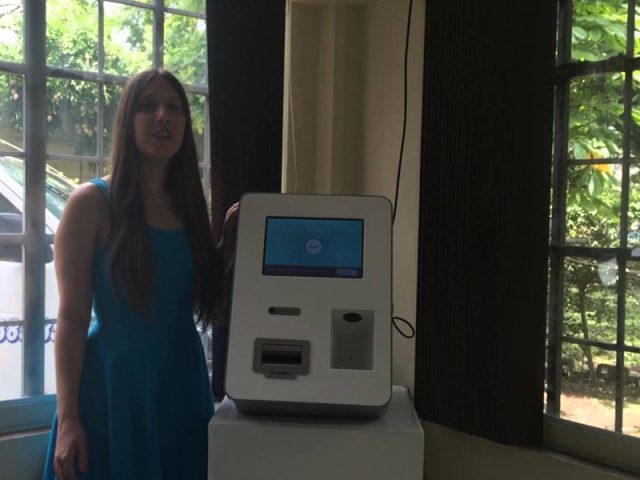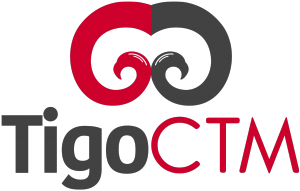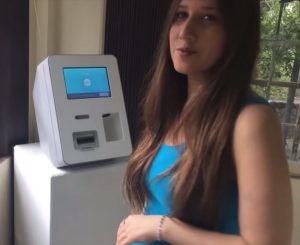Bitcoin business in Panama (interview)

The popularity of cryptocurrency in Latin America is growing rapidly. Bitcoin.com decided to find out the opinion of an experienced person about Bitcoin’s success in this region and interviewed Cindy Zimmerman, executive director of TigoCTM (a Panamanian ATM company that supports cryptocurrency).
Zimmerman is the owner and operator of bitcoin and also an expert in the field of IT-technologies. She told us how she started to work on cryptocurrency and how her idea of installing a cryptocurrency cash machine turned from a source of passive income into a full-fledged business. Its bitcoins are quite popular in Panama, and soon support for private cryptocurrency Dash will be added to them.
Zimmerman Bitcoinomats Help Latin Americans
')
Bitcoin.com (BC) : How did you meet cryptocurrency?
Cindy Zimmerman (SC) : The first time I learned about Bitcoin in 2012 from my brother. I had heard about Bitcoin before, but I did not take this currency seriously until my brother mentioned it and explained to me its advantages over traditional financial systems. And almost immediately after this, the concept of cryptocurrency fascinated me.
BC : What do you think, how well is Bitcoin doing in Latin America?
SC : In Latin America, Bitcoin as a whole is gaining momentum, although the situation is different in different countries. Many Latinos have serious problems using the national fiat currency, so they are usually more positive about the idea of using cryptocurrencies. When people lose faith in their national currency, but they still need to buy basic goods and services, it’s natural that they switch to using other forms of money. The US dollar has historically been a “safe haven” for some people, but at times dollars are almost inaccessible for use. And at these moments, people's eyes rush towards the cryptocurrency.
BC : Could you tell our readers how and why you started installing bitcoin rooms in Panama?
SC : TigoCTM arose to solve my cash issue while I was living in Panama as an expat. At that time, I worked for Coinapult , which is located in Panama, but does business internationally. I was paid in bitcoins so that I could spend money in the United States and in Panama without any problems. Then in Panama there were few ways to buy / sell bitcoins and almost no options to buy / sell Dash. And I got the idea that it’s safest to exchange bitcoins for cash through your own ATM. Also, the device provided people with a safe and reliable way to buy Bitcoins without having to adjust to someone else's schedule.
BC : You and your team have seen a growing interest in cryptocurrency since you started installing your devices?
SC : The reaction to the opening of the bitcoin was interesting. Although Latin Americans are generally positive about cryptocurrencies, residents of some countries have shown more interest than others. Now in our client base Venezuelans occupy a large share. Many Venezuelans move to other countries in search of a more stable economic situation. Some in Venezuela still have families that still have difficulties. TigoCTM allowed people to send money to families so that the latter could buy basic food and medicine. Venezuelans understand that cryptocurrency ATMs are a faster and cheaper option for sending funds than traditional bank methods or money transfers.

BC : Why did your company decide to add Dash cryptocurrency support in bitcoin?
SC : Dash has become a natural choice for crypto-ATMs. Dash transactions are instantaneous, which makes this currency more preferable for interacting with our ATMs than Bitcoin. There are cases when a client uses an ATM and starts to panic, because bitcoins do not come to him immediately. Then they usually call me, and I have to explain to the client that his Bitcoin wallet is requesting a certain amount of confirmations on the network. Often I have to show such users their transactions in the blockchain's "explorer". Project Dash solved this problem quite explicitly.
BC : Do you think the anonymity feature built into Dash will be required by Latin Americans?
SC : I believe that privacy Dash is useful to everyone. But from my own experience I can say that in the world of cryptocurrency privacy is not a feature that people first of all pay attention to when using electronic money. Privacy is thought of later, if it is remembered at all. When an ordinary person deals with cryptocurrency, at first he thinks that he can buy it. Now Bitcoin is more popular and is accepted for payment in many places. But Dash has such features that can be an advantage in cases, for example, remittances. These are instant transactions and a relatively stable exchange rate. Dash Masternods also provide dividends to those who are not satisfied with traditional banking services: for example, the function of savings accounts that are protected from withdrawal by the authorities.
BC : Have you yourself witnessed riots against the background of an unstable economy in specific Latin American countries, for example, in Venezuela?
SC : I myself did not see unrest in Latin America. I only know the consequences. I have heard many stories from countless Venezuelan immigrants who live in Panama. And, probably, a new wave of immigrants from Cuba and Brazil will come, who will tell their stories about it. Panama’s economy is more stable than in these countries.

BC : Why do you think people are now looking for a “safe haven” in cryptocurrencies, and not in gold and silver?
SC : The current economic problems are global. There are people who consider gold and silver a "safe haven". But they can not serve as a good means of payment for international trade. These metals are more suitable for saving savings. If you want to save some of your money in order to spend it in the future, then gold and silver are perfect for this purpose. But if you want to send money to a family in another country, over the ocean, it will be very difficult to send precious metals and very easy - cryptocurrency. Cryptocurrencies are easier to send to other countries than fiat money, and even more so than gold or silver. This is the main attraction of cryptocurrency for migrating people.
BC : How do you and your team plan to expand the Bitcoin network in Latin America?
SC : So far we have purchased five more devices that we plan to install. We are thinking of putting them in a couple of places in Panama. I also received several requests from Venezuela. The remaining places are no longer in Latin America. We received requests from the USA, Canada and some African countries. I hope that we will do this in the next six months, and then we will start working on the next stage of development.
BC : Can you share the main mission of TigoCTM with our readers?
SC : TigoCTM's mission is to provide easy access to cryptocurrencies where people need them most.
Source: https://habr.com/ru/post/306290/
All Articles